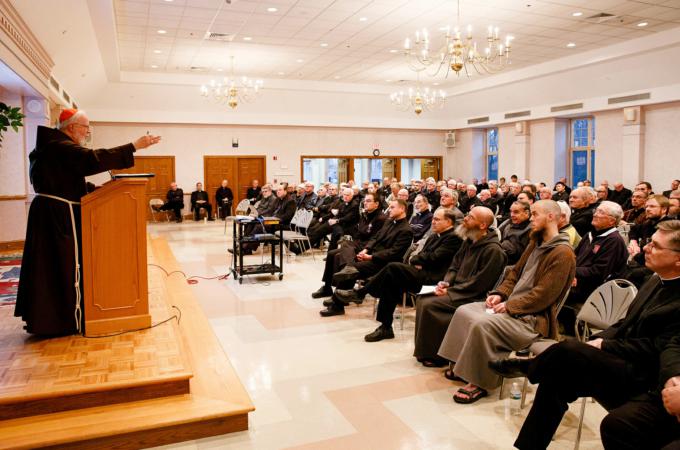From Cardinal Seán's blog
I was very happy to be able to spend Thanksgiving with my family in Miami. And, of course, it was the day after Thanksgiving that we saw the death of Fidel Castro.
The passing of Fidel Castro is certainly a very historic moment. Even though he has been out of the limelight and power for some years, his presence was certainly very important in Cuba and in Cuba's relations with the rest of the world, particularly with Venezuela and the United States.
Being in Miami, it was interesting to see the spontaneous celebration on the part of the Cuban exiles. One of them who is a close friend of mine, Miami-Dade county commissioner and former Miami mayor Xavier Suarez, was interviewed by MSNBC and he gave a recounting of all the atrocities that his family suffered at the time of the Cuban Revolution.
A story similar to his is shared by many people who suffered the loss of loved ones, property or even the possibility of leaving their own country. In light of these experiences, we can see why the Cuban community in the diaspora was celebrating the death of Castro.
Meanwhile, in Cuba itself, it seems there were different reactions. I think there was a generation of people who were very supportive of Fidel Castro, but you get the impression from the reports that those of the younger generation are more indifferent to his death. It appears Fidel did not loom as large in their lives as he had in the lives of their parents. But his death does not cease to be a very symbolic moment, because in the last couple of years there have been great efforts, particularly those that were initiated by Pope Francis, to "open the world to Cuba and open Cuba to the world," as Pope John Paul II said. The renewing of diplomatic relations between Cuba and the United States was a very important step forward. Hopefully, the passing of Fidel, together with the announcement that Raul has said he intends to step down in a year or so, will truly mark a new beginning for the Cuban people and, hopefully, move them closer to the democracy and freedom that everyone is desirous of.
The fact that more and more Cubans are able to visit their families on the island has been a very important development in the last couple of years, but so much more needs to be done so that the hopes that people have for freedom and for prosperity will be realized.
I think that in this moment in history, we need to pray for the Cuban people. We should pray particularly that, as the transition continues, it not be marked by violence, but is one that will be marked by peaceful developments of greater freedom, movement towards democracy and religious freedom for the Cuban people.
Priest convocation
On Tuesday (11/29), we had our fall convocation for priests of the archdiocese at St. Julia in Weston. In the past, we had held a convocation only in the spring, but last year we added a fall meeting, as well, and it was so popular that we decided to repeat the practice this year.
At this convocation, we concentrated mainly on the survey that has been done of Catholics in the archdiocese. It was also an opportunity for other reports on the plans going forward for our pastoral plan, Disciples in Mission.
In my talk to the priests, I focused on Cardinal Martini's book on how the five priorities of Jesus affected how Jesus managed his time. I also spoke about my own experience with parish priests, both in my life and the life of my family.
There was a great turnout for the event and I was so happy that so many priests were able to join us, including Father Frank Daly, who has returned to ministry after many years of absence with permission and will be receiving an assignment soon. We were also happy that Father Paul Hurley, the Chief of Chaplains of the U.S. Army, was able to be with us. We are very proud of the work that Father Paul and all of our chaplains do on behalf of our men and women of the Armed Services.



















